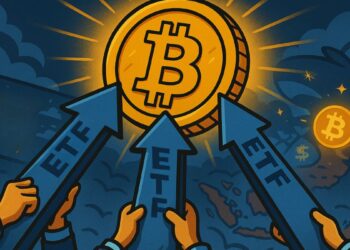Robinhood, the popular brokerage app known for democratizing access to stock trading, is preparing a major expansion into Europe—and it’s doing it through blockchain. According to a Bloomberg report, Robinhood plans to offer tokenized U.S. securities to European investors via a dedicated blockchain network, marking a bold leap into the Web3 era.
This move could redefine cross-border investing, giving retail investors in Europe seamless, 24/7 access to U.S. equities—without the friction of traditional financial infrastructure.
ROBINHOOD PLANS TO OFFER TOKENIZED U.S. SECURITIES TO EUROPEAN INVESTORS – BLOOMBERG
— InstitutionalFi (@InstitutionalFi) May 8, 2025
A Blockchain-Powered Gateway to U.S. Equities
Rather than offering direct exposure to stocks, Robinhood’s new system will issue digital tokens representing real-world assets—starting with U.S.-listed equities. These tokens can be traded on-chain, promising faster settlement, lower costs, and broader accessibility compared to legacy platforms.
According to sources, Arbitrum and the Solana Foundation are currently in contention to power the underlying blockchain infrastructure, making this a strategic win for whichever ecosystem is selected.
Why Tokenized Stocks Matter
Tokenization is quickly becoming one of the most disruptive trends in finance. By representing assets like stocks or bonds as tokens, platforms can:
- Enable 24/7 global trading
- Reduce settlement delays
- Lower fees by bypassing legacy rails
- Expand market access for underserved users
Robinhood’s pivot puts it at the forefront of this movement—offering fractional, borderless investing to millions across Europe.
The European Expansion Plan
This development follows Robinhood’s recent acquisition of a brokerage license in Lithuania, which provides passporting rights to operate across the entire European Union. It’s the latest step in Robinhood’s multi-pronged strategy:
- In 2024, Robinhood acquired crypto exchange Bitstamp, expanding its global crypto footprint.
- Now, it’s aiming to merge traditional securities with blockchain technology, starting with the European market.
The move also positions Robinhood as a direct competitor to neobrokers and crypto platforms offering synthetic stocks or CFDs, but with a regulated, token-based approach.
Rising Competition for Tokenization Infrastructure
With Arbitrum and Solana reportedly in talks to power the blockchain network, the news has stirred excitement across crypto communities. A partnership with Robinhood would bring significant on-chain volume, real-world legitimacy, and broader ecosystem utility.
Whichever chain is selected will likely see a boost in adoption metrics and on-chain liquidity from day one.
Final Thoughts: A Catalyst for Global Web3 Adoption?
Robinhood’s bold move isn’t just about stocks—it’s about reshaping financial access through blockchain rails. As tokenization trends accelerate, this initiative could be the first of many steps toward a Web3-native global capital market.
If successful, it may force traditional brokers, exchanges, and regulators to adapt quickly—or risk being left behind.










